Embraer has secured 120 minute extended twin-engine operations (ETOPS) approval for the E190-E2 and E195-E2 from the Brazil’s Civil Aviation Authority ANAC (Agência Nacional de Aviação Civil), FAA (Federal Aviation Administration), and EASA (European Union Aviation Safety Agency). This capability paves the way for E2 operators to fly direct non-limiting routes over water and other remote areas, saving both time and fuel.
The granting of ETOPS-120 capability is testimony to the aircraft’s design and to the maturity of the systems; ETOPS certification requires the fleet of aircraft in operation to reach cumulative flying hour milestones. ETOPS certification for the E2 comes later than expected due to the global pandemic which significantly reduced aircraft operations, slowing down the accumulation of flying hours required.
Arjan Meijer, President and CEO Embraer Commercial Aviation, said, “ETOPS is an important additional capability for the E2, and a key enabler for more sales, especially in Asia Pacific. Airlines flying routes with up to 120 minute diversion time will be able to use straighter, quicker and more fuel efficient routes, and have access to more diversion airports. ETOPS capability is a further optimisation of the E2, already the most fuel efficient aircraft in its segment.”
More information
ETOPS (/iːˈtɒps/) – Extended-range Twin-engine Operations Performance Standards – flight rules for one-engine-inoperative flight conditions. The International Civil Aviation Organization (ICAO) coined the acronym for twin-engine aircraft operation in airspace further than one hour from a diversion airport at the one-engine-inoperative cruise speed, over water or remote lands, or on routes previously restricted to three- and four-engine aircraft.

